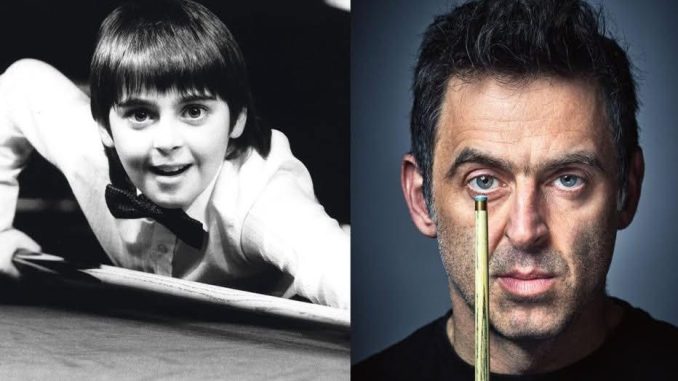
For three decades, Ronnie O’Sullivan has dazzled the snooker world with a speed and flair unmatched in the sport’s history. Known globally as “The Rocket,” his rapid cueing and attacking style have produced moments of genius that left opponents stunned and fans breathless. Yet behind the whirlwind of centuries, maximum breaks, and world titles, O’Sullivan says his greatest fight was never against another player — it was against himself.
“They call me ‘The Rocket’ because of my speed,” O’Sullivan reflected in a candid recent interview. “But the truth is, I’ve spent 30 years learning how to find the brakes.”
It is a striking admission from a man long hailed as the game’s most naturally gifted player. From the moment he turned professional at just 16, O’Sullivan was a phenomenon. His cue action, so smooth and instinctive, seemed to belong to another world. Matches that dragged on for hours against other players often ended in minutes when O’Sullivan was at the table. The speed wasn’t simply entertainment — it was history-making. He holds the record for the fastest 147 break in competition, clocked at just over five minutes, a feat that has become the stuff of sporting folklore.
But as O’Sullivan himself admits, speed was also a shield. “The speed wasn’t just an attack on my opponent; it was a defense against the silence, against the thoughts in my own head,” he said. “I was a prodigy at war with myself, and the snooker table was my battlefield.”
That battlefield was marked by contradictions. For every moment of brilliance, there were darker stretches where the weight of expectation felt unbearable. He won world championships, he became a global sporting icon, yet at times he struggled to find joy in the game that defined him. “I won World Championships, I made 147s, but there were years I hated the sight of my own cue,” O’Sullivan admitted. “The pressure wasn’t just to win — it was the pressure to be the ‘genius’ everyone expected, every single time. Some days, the weight of that was so heavy, I just wanted to walk away and never come back.”
Fans and commentators saw only the artistry on the table. Few understood the inner turbulence that powered it. O’Sullivan has long been open about his battles with mental health, describing the challenge of living up to his own talent as more draining than any opponent. “The magic everyone saw on the table was fuelled by a darkness no one could see off it,” he said.
The turning point, he revealed, did not come from winning another title or mastering a new technique. It came from running. “It wasn’t another trophy that saved me,” O’Sullivan explained. “It was running. Miles and miles on an empty road, just the sound of my own breathing. That’s where I learned discipline. That’s where I learned stillness. I had to find peace away from the table before I could ever truly master it.”
Running became more than a hobby — it was a lifeline. In training for marathons, O’Sullivan found a rhythm and clarity he could never locate under the lights of the Crucible Theatre. “The genius isn’t in your hands,” he said. “It’s in the quiet mind you build after a lifetime of noise. It’s in learning to love the process more than the prize.”
This revelation speaks to a broader truth about sport and passion: that external glory rarely guarantees inner peace. For O’Sullivan, balance came only when he stopped measuring himself solely by victories. He found, in the steady miles of long-distance running, the antidote to the chaos of his own brilliance.
As O’Sullivan continues his remarkable career, he remains both an entertainer and a philosopher of the game. Fans still marvel at his speed and creativity, but his own measure of success has changed. It is no longer about being flawless, but about being whole.
His story poses a universal question to anyone striving for mastery in their craft: What is the one battle you had to win against yourself to find true peace in your passion?
For Ronnie O’Sullivan, that battle was learning to slow down — to find stillness in motion, clarity in chaos, and peace in the process of play. The Rocket may have built his legend on speed, but his greatest triumph was discovering the power of brakes.
Would you like me to style this piece like a sports magazine profile (with punchy storytelling and narrative flow) or like a formal newspaper feature (structured with quotes and analysis)?
Leave a Reply